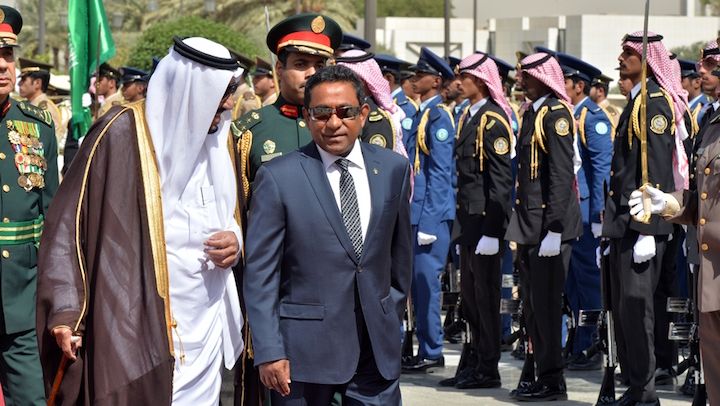MDP warns of ‘creeping colonialism’ by Saudi Arabia

04 Mar 2017, 09:00
The main opposition Maldivian Democratic Party has expressed concern with alleged plans to sell Faafu atoll to the Saudi royal family, warning that the deal would “effectively cede control of an entire atoll to a foreign government.”
“The MDP expresses serious concern that the Faafu plans – which would allow a foreign power to control one of the country’s 26 atolls – amount to creeping colonialism by the Saudi government,” the party said in a statement.
The MDP has also told the Times of India that “the decision to cede the atoll should be seen in the context of propagation of Wahabism for decades now” and the growing influence of the kingdom in the Maldives.
“Saudis fund scholarships for 300 students every year. About 70 percent of Maldivian population already subscribes to the Wahabi sect,” said an MDP official.
Become a member
Get full access to our archive and personalise your experience.
Already a member?
Discussion
No comments yet. Be the first to share your thoughts!
No comments yet. Be the first to join the conversation!
Join the Conversation
Sign in to share your thoughts under an alias and take part in the discussion. Independent journalism thrives on open, respectful debate — your voice matters.




